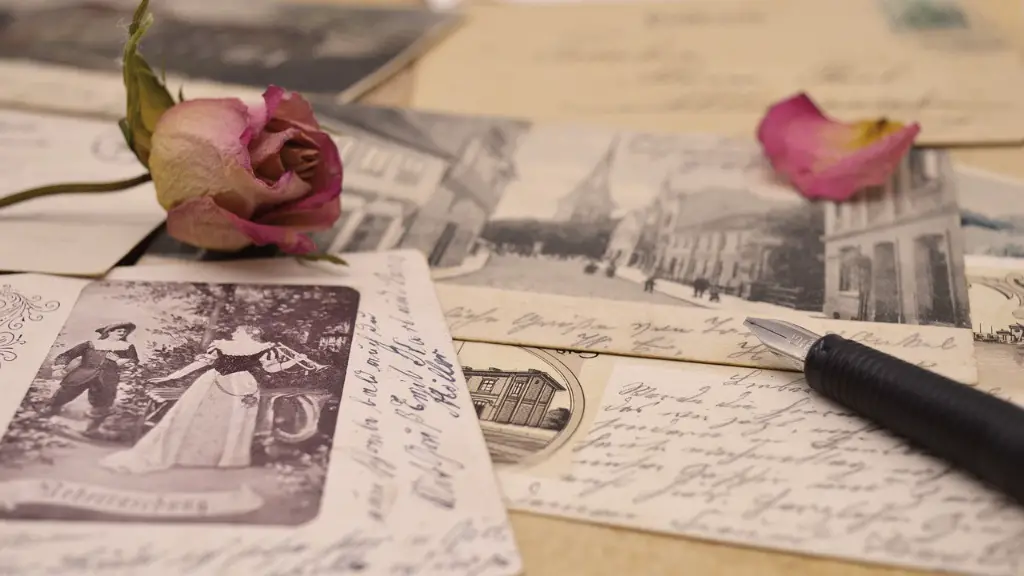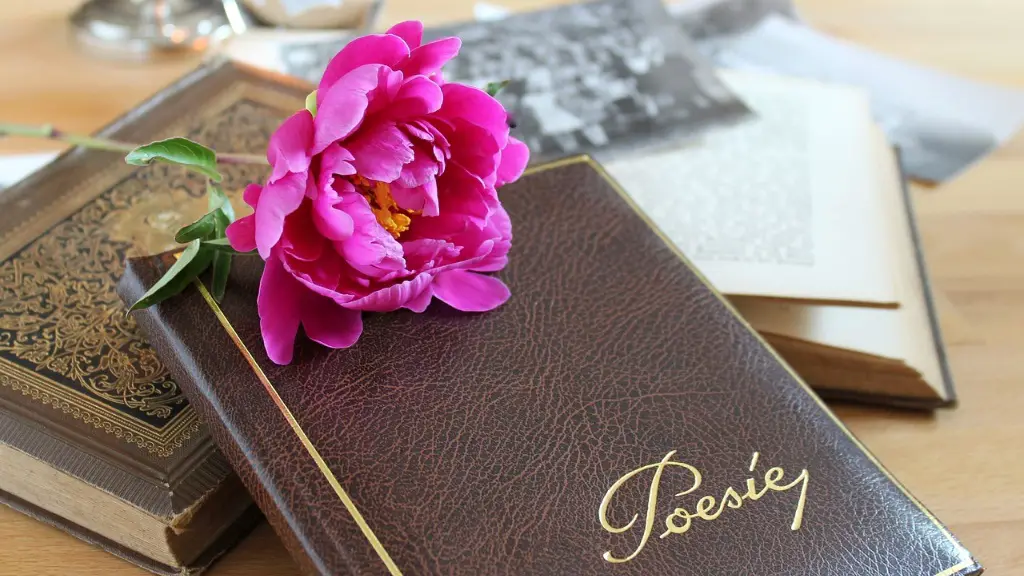The Melancholy Lyrics of ‘Don’t You Turn Back’
The lyrical masterpiece ‘Don’t You Turn Back’, written by celebrated Harlem Renaissance poet and novelist Langston Hughes in 1926, can be interpreted in a variety of ways. The song invokes deep emotions of sorrow and strife, chronicling the story of a man who has come to terms with his past and his failure to move on. Hughes wrote the poem with a melancholic spirit, the lyrics driven by an intense longing for a better future. The poignant words of the song help to contextualize the struggles of African Americans in the 1920s and provide an insightful perspective into the collective experience of the Harlem Renaissance.
The narrative of ‘Don’t You Turn Back’ follows a man who is forced to confront the tough reality of his life by a voice that speaks to him, representing his conscience or the universe itself. The man wishes to flee, but he is warned that if he turns his back on his life, his problems will still follow him. He is advised to stay put and fight for his dreams and better future, rather than to run away from his struggles.
The powerfully symbolic images Hughes employs serve to highlight the consequences of sheltering away from one’s problems. The narrator is encouraged not to withdraw from his responsibilities and to keep striving for his goals, despite the hardships that stand in his way. Hughes often spoke about the fight for African American freedom, and ‘Don’t You Turn Back’ is a remarkable example of this idea in poetry form. The poem speaks to the metaphor of freedom and how it is only felt when one tirelessly works and overcomes the obstacles they face.
The visuals evoked by the song have a lingering effect and create a sense of respite, but it is not the tranquil escape the speaker seeks. Instead, the words suggest that we can only experience true comfort when we accept our struggles and fight for our dreams. The narrator’s moral is not to surrender, but rather to ‘keep a-fightin’, for no matter how dire a situation may seem, a brighter future is within reach.
To give the poem a sound of its own, Hughes utilizes repetition and phrasing to emphasize his core message of courage and perseverance. He closes the song by repeating ‘keep a-fightin’, which serves to drive home the idea that you should never give up and continuously work towards a better future. Although ‘Don’t You Turn Back’ speaks to a particular historical period, the powerful words of Hughes remain relevant even today. The timeless spirit of the poem speaks to our own struggles and the determination to overcome them and move forward.
The Symbolic Messages Conveyed by Hughes
The symbolism in Hughes’s ‘Don’t You Turn Back’ is prevalent throughout the poem, with two particular images in the song referring to the difficult realities of being African American in the interwar period. The first image is of a steamboat, which Hughes uses to liken his speaker’s plight to the position of many African Americans: lost in the middle of the ocean, stalwartly navigating its depths to attempt to find their way back to land. The second image is of a river, speaking to the experience of African Americans as they worked day and night to forge a path of progress and righteousness for themselves in a world hostile to them.
What is remarkable about ‘Don’t You Turn Back’ is that despite the tragic circumstances Hughes conveys in his poem, he still manages to leave his readers feeling uplifted and energized to continue the fight. He urges his readers not to surrender but to have faith in themselves and strive for the future they dream of. The speaker in ‘Don’t You Turn Back’ is a symbolic representation of the collective plight of African Americans, and Hughes’s song serves as a powerful reminder to stand firm and find courage in the face of adversity.
The performances of ‘Don’t You Turn Back’ also present a powerful message. Chamber music versions of the song have been covered by musicians such as Sarah Jane Cion and Charles Floyd, creating a hauntingly beautiful accompaniment to the poem’s lyrical narrative. These performances further showcase the strength of the poem, the subtle strings of guitars, cellos, and violins creating a backdrop for Hughes’s powerful words.
Hughes’s words of wisdom and courage are presented in an emotionally affecting way that speaks to our own experiences. His poem serves as a source of strength for those that have faced similar struggles and as a reminder of the power of resilience, strength, and courage. The powerful message in ‘Don’t You Turn Back’ provides a resonant reminder of why it is so important to never give up, no matter what obstacles one faces.
Legacy of ‘Don’t You Turn Back’
The poem ‘Don’t You Turn Back’ by Langston Hughes has a long history stretching back over a century. The song was popular during the Harlem Renaissance, a period in which Hughes was one of the period’s most influential writers and poets. ‘Don’t You Turn Back’ embodies the spirit of the Harlem Renaissance with its powerful imagery, lyrical structure, and poignant message. Since its initial release, the song has continued to captivate audiences and draw attention to the struggles faced by African American communities. Poems such as ‘Don’t You Turn Back’ provide an undeniable insight into this important period in American history.
It’s no surprise that ‘Don’t You Turn Back’ has been recorded by many notable performers such as Sarah Jane Cion, Charles Floyd, and the Duke Ellington Orchestra. Hughes’s poem remains an essential part of the history of African American music, conveying a powerful message of hope and resilience. In many ways, the poem serves as a powerful inspiration for unity, struggle and hope among oppressed minorities.
The message of ‘Don’t You Turn Back’ is still just as relevant today as it was when it was first released. Over the last century, it has become an anthem of courage and resilience for African Americans and other marginalized communities. The song serves as a reminder of the importance of perseverance and fighting for one’s rights and dreams, even in the darkest of times. Hughes’s timeless words provide us with a source of strength and courage when we need it most.
Langston Hughes’s Intertextuality in ‘Don’t You Turn Back’
It’s no secret that Langston Hughes was a master of intertextuality. Often incorporating the works of other writers and poets into his work, Hughes manages to utilize references to other works in a way that serves his own purpose while also giving insight into the themes of the original text. In ‘Don’t You Turn Back’, Hughes utilizes allusions to works such as the Bible and classic African American spirituals, allowing him to build on the voices of the past and create something new.
Hughes’s intertextuality is a key part of ‘Don’t You Turn Back’, allowing the reader to consider the themes of the poem in a broader context. Through Hughes’s subtle references to other works, readers are able to gain insight into the meaning of the poem and the various struggles that African Americans had to face in the 1920s. By utilizing the works of artists such as Paul Laurence Dunbar, Moses Hogan, and Mark Twain, Hughes is able to create a cohesive narrative and draw attention to the collective history and experience of the Harlem Renaissance.
Intertextuality is one of the key elements in Hughes’s work. ‘Don’t You Turn Back’ is an exemplary example of this, in which Hughes’s references to other works and genres can be seen as an effort to expand the conversation surrounding the experiences of African Americans in the 1920s while also honoring the voices of the past. In short, Hughes’s intertextuality serves to amplify the power of his work, allowing readers to explore the various meanings and layers of ‘Don’t You Turn Back’ in a new light.
The Legacy of Langston Hughes and ‘Don’t You Turn Back’
Langston Hughes was one of the most influential figures of the Harlem Renaissance, and his work continues to inspire readers and writers today. His poem ‘Don’t You Turn Back’ is an iconic representation of the struggles of African Americans in the 1920s and serves as a powerful reminder that no matter how difficult a situation may be, there is always hope for a better future. From its lively performances to its powerful symbolism, ‘Don’t You Turn Back’ remains an outstanding example of Hughes’s work and the legacy of his timeless words.
Hughes’s work has had a lasting impact on literature and art. His words serve to comfort and inspire, providing readers with a source of strength in the face of adversity. ‘Don’t You Turn Back’ is a masterpiece of its time and has served as a powerful voice in literature long after Hughes’s death. The poem stands as an example of Hughes’s genius and will surely continue to inspire future generations.
Conclusion
Langston Hughes’s formidable poem ‘Don’t You Turn Back’ is still as relevant today as it was when it was first released. The song bears witness to the struggles of African Americans during the Harlem Renaissance and serves as a powerful reminder of the strength one can find when persevering through the hardships of life. Its message of resilience and strength continues to inspire readers today and will surely remain a source of strength for generations to come.




